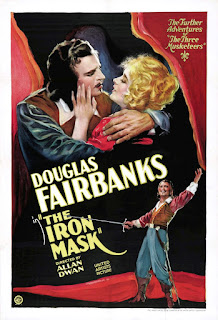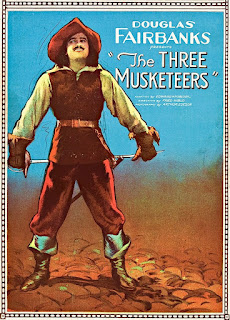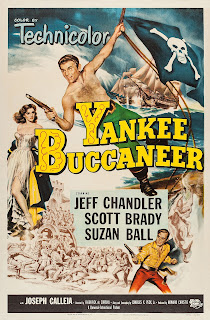The Three Musketeers of 1939 is a musical comedy that is musically impaired and comedically challenged. Don Ameche imbues the role of D'Artagnan with an earnest enthusiasm that does little to counterbalance his utter mediocrity. The three musketeers of the title's fame are stiff caricatures who appear briefly for the purpose of enabling the Ritz Brothers, who are cooks at an inn, to be mistaken for them by D'Artagnan and everyone else. It bears a closer resemblance to a stock Three Stooges short than a feature-length comedy, and could have benefited immensely from some ruthless pruning. Some of the comedy routines are humorous enough to elicit laughter, but there are too many instances where the plot of the novel weighs the movie down too heavily to allow it to fly to greater heights of absurdity and originality, which really should have been the filmmakers' aim if they wanted to create a parody lasting more than 30 minutes. The music is something more to be endured than enjoyed, which is all the more unfortunate for the frequency with which it is inflicted on the viewer. The movie's saving grace is Binnie Barnes, who plays Milady, and although she shines in the role in its comedic incarnation, it would have been fascinating to see her reprise it in a serious adaptation.
Writing: PoorDirecting: Fair
Acting: Fair
Cinematography: Good
Musical Numbers: Poor
Comedy Routines: Fair
Stunts: Fair
Swordplay: Poor
Panache: Mediocre
Overall Rating: Mediocre
Swashbuckling Rank: Mediocre
[Originally posted in Cuparius.com on 7 June 2011.]
Addendum
Written by: M.M. Musselman and William Absolom Drake
Based on: The Three Musketeers by Alexandre Dumas
Directed by: Allan Dwan
Performed by: Don Ameche, The Ritz Brothers, Binnie Barnes, et al.









